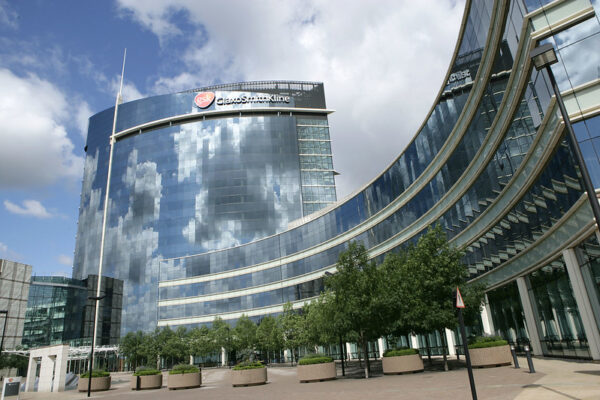
A large British drugmaker and a small biotechnology company in the U.S. have started a late-stage trial of a monoclonal antibody-based therapy for Covid-19.
London-based GlaxoSmithKline and San Francisco-based Vir Biotechnology said Monday that they had launched the Phase II/III study, COMET-ICE, testing VIR-7831 in early treatment of patients infected with SARS-CoV-2 who are at high risk of hospitalization. The companies said the initial results of the trial – which does not yet appear to be posted on the ClinicalTrials.gov database – could be available before the end of this year, with early access as soon as the first half of next year.
Shares of Vir were down 4.5% on the Nasdaq late Monday morning, while shares of GSK were down nearly 1.5% on the London Stock Exchange.
“Monoclonal antibodies directed against the SARS-CoV-2 virus could provide an effective and immediate immune response to Covid-19, bypassing the need for our body to produce its own antibodies, which is particularly important in the absence of an effective vaccine,” GSK President Hal Barron said in a statement. “This study will assess the ability of VIR-7831 to prevent high-risk individuals from progressing to severe disease, and in future studies we will test the antibody’s ability to prevent infection in high-risk patients and to reduce disease severity in patients who are already hospitalized.”
The companies said the trial will enroll about 1,300 patients worldwide with early symptomatic infection. VIR-7831, which also has the development name GSK4182136, is a single-dose antibody that Vir found through its antibody-discovery technology. According to preclinical testing, the antibody showed a high degree of potency in neutralizing the SARS-CoV-2 virus that suggested a high barrier to resistance and an ability to recruit immune cells to kill cells that had been infected, as well as an affinity for the viral spike protein that allows it to infect those cells.
GSK and Vir are also developing another antibody drug, VIR-7832, which they are expected to enter into Phase II testing later this year.

Health Benefit Consultants, Share Your Expert Insights in Our Survey
Share some of the trends you are seeing among your clients across healthcare, including chronic conditions, behavioral health, healthcare navigation, and more.
Multiple companies have applied monoclonal antibodies to antiviral treatment for Covid-19. However, AstraZeneca and Regeneron Pharmaceuticals, the latter of which is partnered with Roche, are using two-antibody drugs, based on the theory that such a cocktail approach can overcome viral resistance mechanisms.
Photo: GSK














